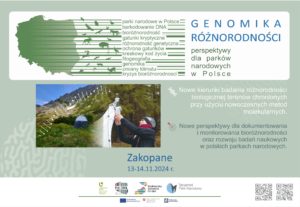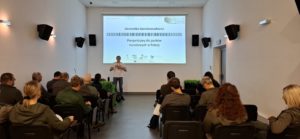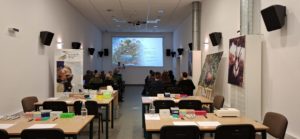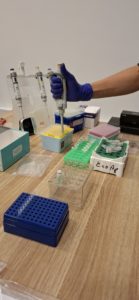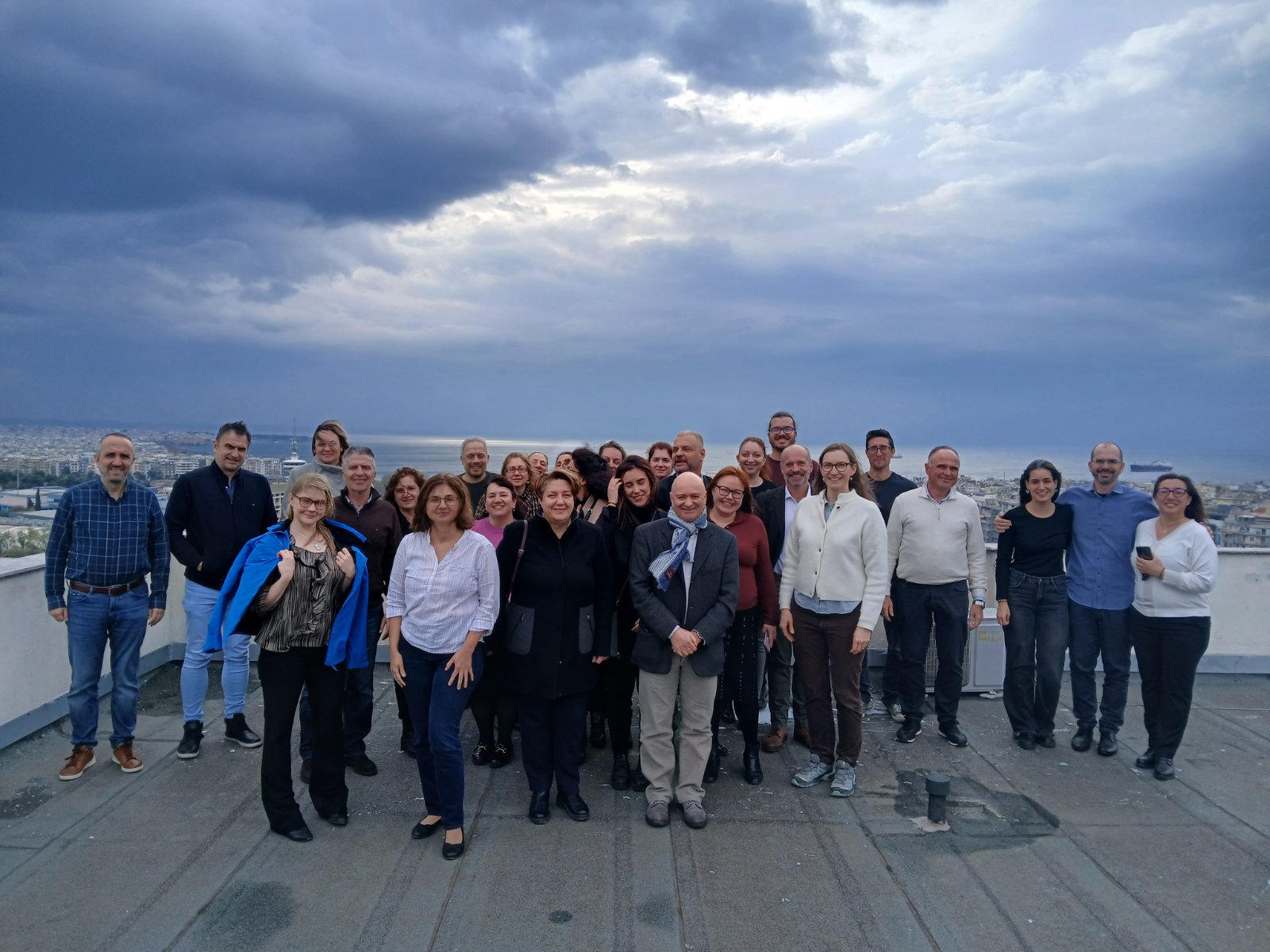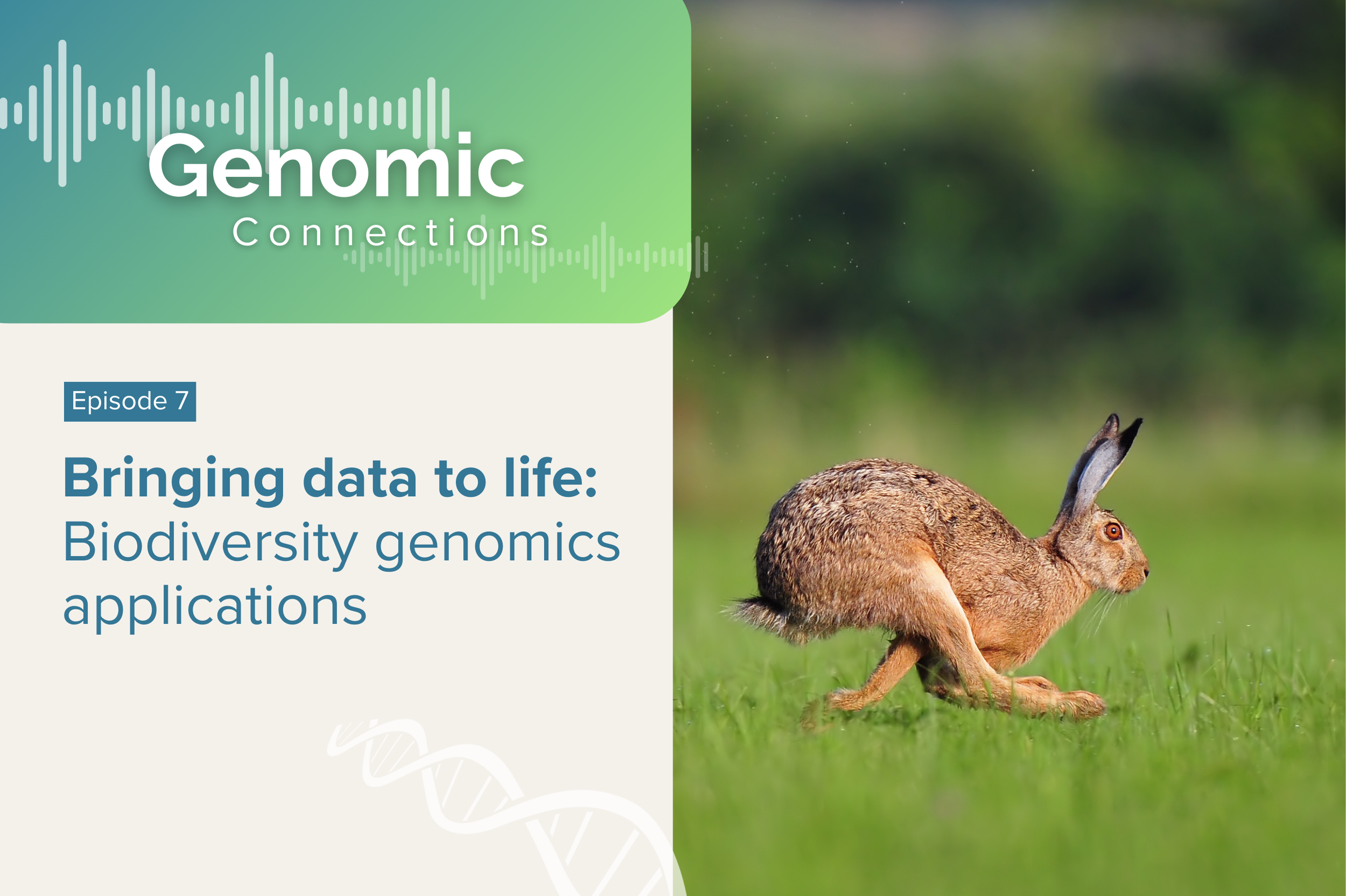On 13 and 14 November 2024, a team from the Department of Invertebrate Zoology and Hydrobiology at the University of Łodz (UniŁodz), in cooperation with the Tatra National Park (TNP), hosted the workshop: “Biodiversity Genomics: Prospects for National Parks in Poland” at the TNP Nature Education Center in Zakopane (PL).
The Workshop introduced Polish National Parks staff to the latest DNA-based biodiversity assessment techniques. Fifteen representatives from eight national parks attended the workshop.
The workshop program included several lectures and hands-on activities. Over two days, experts from UniLodz (Tomasz Mamos, Grzegorz Tończyk, Aleksandra Jabłońska, Tomasz Rewicz, Gabriela Karlik, Sylwia Holak, Karolina Bącela-Spychalska, Piotr Falczewski and Karolina Biniek) presented the principles and applications of DNA (meta)barcoding, a powerful tool for rapid species identification. Participants learned how to collect and analyse biological samples and use the Barcode of Life Data Systems (BOLD) to share and access biodiversity data. The programme concluded with our experts and workshop attendees discussing the prospects of implementing (meta)barcoding to learn about the biodiversity of protected areas.
The theoretical introduction included contributions by Tomasz Mamos and Michal Grabowski on “The threshold of the third decade of DNA (meta)barcoding: from concept to practice;” by Aleksandra Jablonska on “(meta)Barcoding field studies: before, during and after…;” and by Tomasz Rewicz on “Barcode of Life Datasystems: collecting and sharing barcoding data.”
Tomasz Mamos and Gabriela Karlik led the practical session “DNA barcoding on the Oxford Nanopore Technologies platform,” based on insects collected in the Tatra Mountains in July 2023. A total of 960 individuals were barcoded. As a result, 727 sequences representing 327 Barcode Index Numbers (BINs) were obtained.
Interestingly, it was possible to identify only 168 sequences at the species level: most of them were Diptera and Hymenoptera, and some had not been reported from the Tatra National Park before. This proves that, despite decades of faunistic studies, the fauna of the High Tatra Mountains is still far from being well documented and requires detailed faunistic and taxonomic studies, including building a proper DNA barcode reference library for the local species.
Participants appreciated the Workshop experience and recognised the importance of molecular techniques in understanding and preserving biodiversity in protected areas.
The Department of Invertebrate Zoology and Hydrobiology of the University of Lodz is the national node of the International Barcode of Life (iBOL) and represents the Polish Barcode of Life (PolBOL) initiative.
The Workshop was organised within the EU Horizon Europe project “BGE: Biodiversity Genomics Europe;” the barcoded insects from the Tatra Mountains were collected within the “High Mountain Sampling” Task of BGE.
The featured image of this blog post is a View from Rysy to Czarny Staw pod Rysami and Morskie Oko by Milan Bališin, published under a CC4.0-CC-BY-SA licence.

